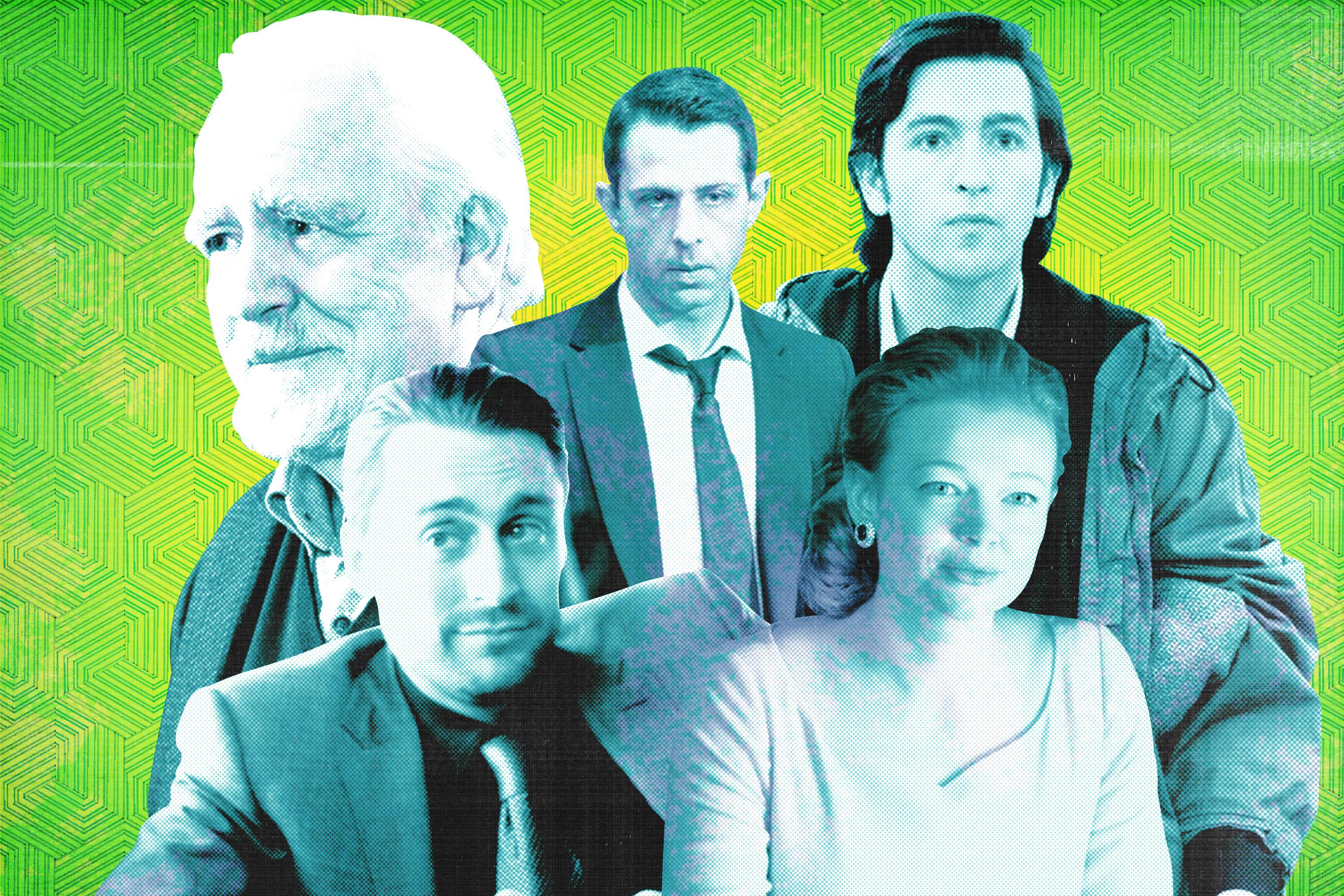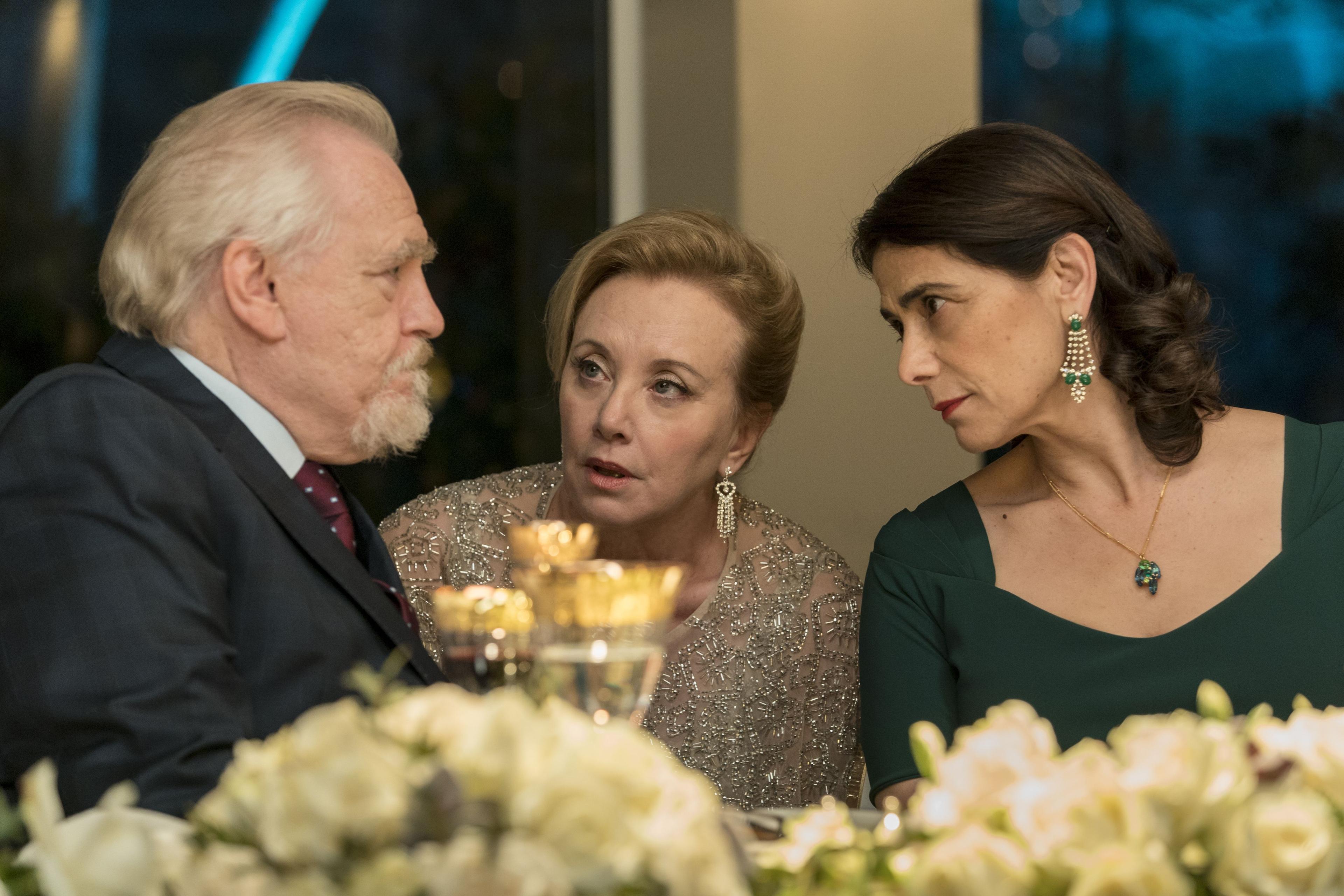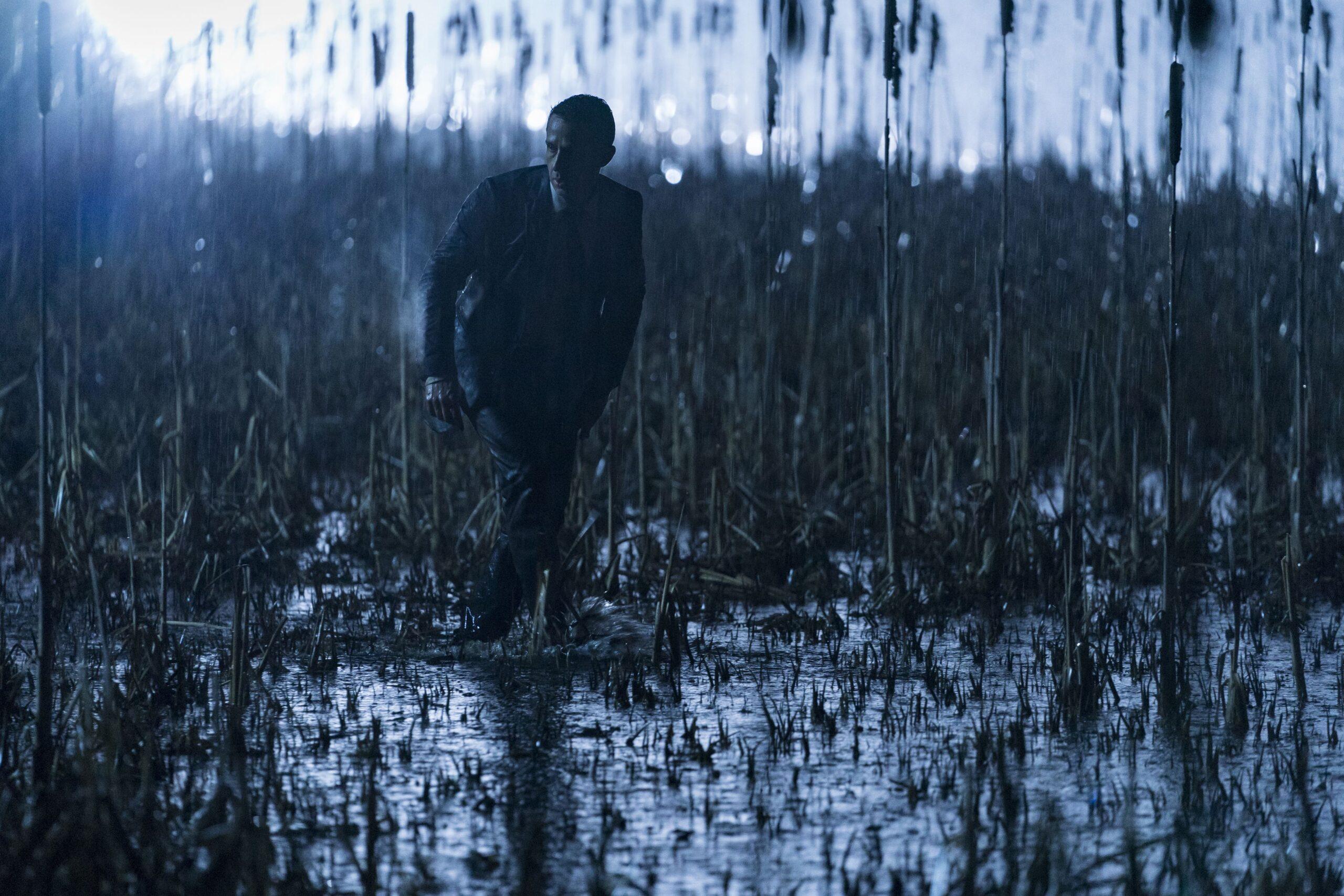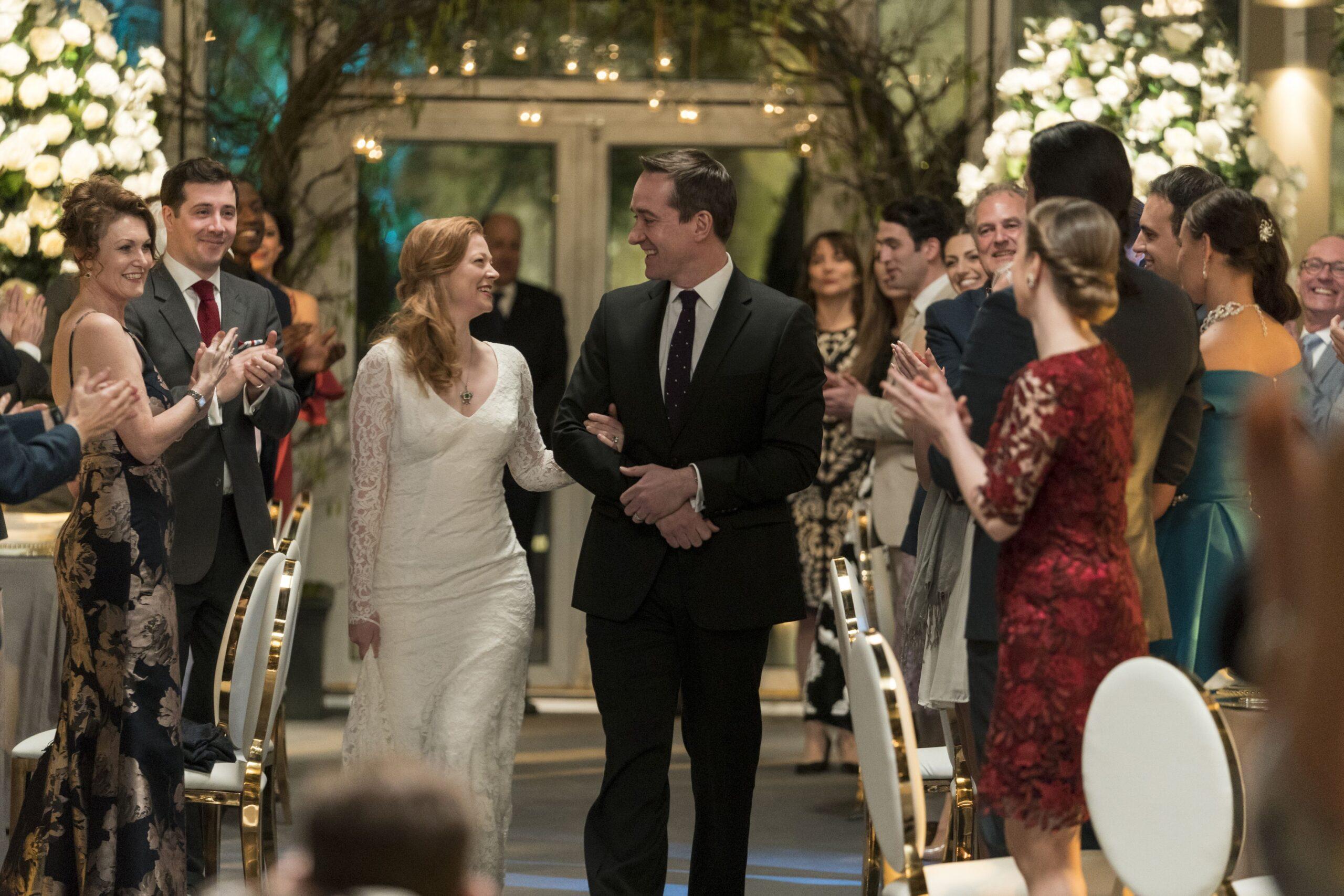
When the cast of the salty family saga Succession first got together for a table read of the pilot script two Novembers ago at Silvercup Studios in Long Island City, they had no idea that the rest of their day was going to unfold like something out of showrunner Jesse Armstrong’s twisted imagination. “It was Election Day of 2016,” Frank Rich, the longtime cultural and political columnist who is a producer on Succession as well as Veep, recalls in a recent phone conversation. “Yes, that fateful day, where after a very happy table read, everyone went to various parties to celebrate Hillary’s victory.” This bit of trivia struck me as a fitting beginning to the beguiling Succession, and I was reminded of it again, for no particular reason, when I saw the scene in Sunday night’s season finale featuring a smug, proud Roman Roy watching his pet rocket launch blow up right in his face.
Such is Succession, the lush, brash series about the damaged Roy clan and its powerful family conglomerate, a show that traffics in luxury yet never lets anyone—actors and characters and viewers alike—get too comfortable. Created by Peep Show and The Thick of It alum Armstrong, Succession has a creative brain trust that includes veterans of shows such as Veep (like Rich, and writer-producer Tony Roche) and enterprises like Funny or Die (buddies Adam McKay, who directed the pilot, and Will Ferrell), giving the series an idiosyncratic sensibility that is, like a fried songbird, an acquired taste.
The show is unsparing in its depictions of corrupt misery and perverse joy. The acting is big but vulnerable; deadly serious yet over the top. The music is an ornate merry-go-round, an M.C. Escher staircase, a hall of mirrors—just like the plot it punctuates. The camera work is shaky, intrusive, and saturated with wealth. The show is obsessive about its every last meta detail: a mocked-up cover of New York magazine that briefly flashed by in one midseason episode was workshopped with the publication’s editor, Adam Moss, who even called in the magazine’s art department to get every last font just right.
Characters get screwed over and stuck in tunnel traffic; they undercut and overcompensate and threaten and lie, acting like crabs in a pot. “Every time anybody tries to ascend this ladder to a place of any kind of fulfillment of ambition,” says director and producer Mark Mylod over the phone, “there is the rest of the family to pull the rug on them, constantly, in almost every situation. There’s something kind of beautiful and hilarious and tragic about that all in one.”
Beautiful, hilarious, tragic: those three words also do a great job of describing Season 1’s doozy of a finale, with its Renaissance painting aesthetics, and its insecure head bops to Billy Joel’s “Uptown Girl,” and its poor, doomed cater-waiter (not to mention that botched rocket launch and those blessed missing thumbs). Written by Armstrong and directed by Mylod, “Nobody Is Ever Missing” has a title that sounds like a song by the National, a standout performance in a show full of them, and a satisfying plot that is emblematic of the best of Succession.
In the penultimate episode of this first season of Succession, the smooth-talking bronancier Stewy and the basket case scion Kendall Roy stand shivering in the English countryside in the days leading up to Siobhan Roy’s wedding. “Has your sister heard of Lake Como?” Stewy asks, pulling his coat bitterly around him. “Has she ever heard of Venice, St. Barts, the Maldives?” It’s the same reaction that Mylod says he had when he found out that the “destination wedding” episodes he’d be directing were going to be shot near the border of Wales and England—in February and March. “It was a sad day,” says Mylod, sounding mildly aggrieved all over again. “I’m thinking about South Africa, or Italy, or Marrakech!” (When I point out his similarity to the script, he laughs: “Yes, that was Jesse, taking all my quibblings and bitchings,” he says.)
Mylod had signed on to direct four episodes of Succession after being sent the pilot, which McKay directed and Armstrong wrote. (McKay, Armstrong, and Rich had previously collaborated on an HBO project called The Imperialists that never got picked up.) Despite the fact Mylod and Armstrong had both operated in British comedy circles for years, they had never met, but Mylod was “a massive fan of Peep Show,” he says, “as is just about everybody in the U.K.” Mylod’s résumé included a number of shows revolving around complicated, dysfunctional families. Back in the U.K., one of the first things he directed was a program about a blue-collar household called The Royle Family, and he has directed episodes of The Affair and Game of Thrones—two shows best known for their wholesome depictions of loving nuclear family units. And he is a coexecutive producer on Shameless, the forever-underrated series about the scrappy, anti-elegant Gallagher clan. “I can successfully direct a show about an underclass family in Chicago not because I have one clue what it’s like to be that person in Chicago,” Mylod says, “but because I’ve grown up in a family, and I understand that dynamic.”
When it came to family dynamics in Succession, much of the initial fun for viewers was in trying to parse what details came from which real-life families. The Murdochs were an obvious focus, particularly considering that Armstrong had once circulated a feature film script about the family, but the show’s cast and crew took great pains, with much patience, to point out that the show had a vast universe of non-Murdoch influences to work with, too, from the Redstones to the Maxwells. Rich says that, after that first Election Day table read, “suddenly we’re thinking, ‘Oh, there’s a little bit of Trump in these characters,’ but that was never our intention. There was no discussion of Trump when the show was being created.”
There was, Armstrong says, some prior acknowledgement of the Chappaquiddick-like series of events that closed the season finale, though. “A totally fair enough comparison,” he says. But “it’s just like, it’s not ‘the Murdochs’, he’s not ‘Teddy Kennedy.’” But incorporating this nod to the Kennedys is slyly effective—a reminder that the corrosive and even deadly effects of power and nepotism are a bipartisan concern. “I think I had always pitched the idea that Kendall might be involved in an accident,” says Armstrong, speaking by phone from London, “that would give a different flavor to the last episode.”

The characters in Succession are layered and developed enough that you can make the case that the show is “really about” a number of them. As we live in a patriarchy, for example, Logan Roy as the central figure checks out. Tom and Shiv’s wedding is the backdrop for two of Succession’s most meaningful episodes, placing them symbolically front and center. (Shiv also seems to be the only Roy sibling capable of competently closing a deal; she and Gerri are the most important fixers in the Roy orbit.) Cousin Greg is the audience’s most pure and beloved avatar, in part because of his outsider status and his love for California Pizza Kitchen, but also because of the way he has grown increasingly canny and fluent when it comes to understanding and navigating the Waystar Royco world, in much the same way that viewers themselves have picked up quickly on the show’s nuances. There’s even a terrifying simulation in which Succession is actually a documentary about the rise, reign, and fall of President Connor “My Readings” Roy.
On a functional level, though, Succession truly begins and ends with the push-up-counting, sneaker-throwing bundle of repressed energy and held grudges that is Kendall Roy.
“I weirdly knew Jeremy in a completely other life,” says Rich of actor Jeremy Strong, “because one of my closest friends in life, no longer alive, sadly, was the playwright Wendy Wasserstein. And Jeremy, just out of Yale, was her last assistant, as she was dying. He wouldn’t say this, but I would: he was her assistant, slash—to some extent—caregiver.” Strong, who also once worked for Daniel Day-Lewis, made his Broadway debut in 2008 and has acted in a number of on-screen projects since too, including McKay’s The Big Short, bringing a stage thespian’s intensity and temperament along with him for this TV role.
“I admire all these actors so much,” he told The New York Times in 2015 when asked about how much fun he must be having on the Big Short set. “But there was a day when people were cracking jokes and laughing, and I started to allow myself to have a good time. I immediately found it distracting and depleting.” He brought a similar method-style process to Succession: “While we were cordial and friendly,” he told Variety about his coworkers, “and I have a great deal of love and respect for all the actors on the show, I tended to keep a distance and felt quite remote.”
Mylod says that it was a challenge, though a worthy one, to manage Strong’s in-the-moment needs with the “much more connected, much more about the rehearsal process, and the sharing of that process” approach of the rest of the cast. “Had it been anyone other than Jeremy,” Mylod says, laughing, “anyone with less talent, it would have driven me crazy.” He adds that he knew it was worth it during edits, when he saw “how much was coming out of those gorgeous eyes.”
The night they shot the scenes of Kendall’s accident and subsequent long walk home, there was “an almost comical amount of rain and mud and snow,” Mylod says. “It was cold, and it was uncomfortable,” says Armstrong, “and, you know, some people do much worse things in their jobs and lives, but it wasn’t much fun for him. I’m glad I wasn’t doing it.” (“Fucking freezing cold,” says Rich.) The crew set up what Mylod describes as “this godawful cacophony of music” on speakers and would “literally pour two buckets of freezing cold water over [Strong’s] head before each take.”

The result, somehow, is a cowardly journey for Kendall that feels almost triumphant, a despicable getaway that still resonates, a character arc that is devastating to contemplate. In the pilot, Kendall mocks a subordinate who asks if he needs to check in with the big boss: “Do you want to call your dad?” he snaps. By the end of the finale, however, there but for the grace of Dad goes he.
“There was no kowtowing to likability,” explains Mylod, whose four Succession episodes this season were the final two, which galvanized viewers, and the second and third, which largely did not, a phenomenon that The Watch’s Andy Greenwald pointed out when he took Twitter along for a ride on his own personal Succession roller coaster.
Much of the unenthused reaction to the show early on took on a strident theme: Why should anyone care about these horrid, selfish souls? But to the show’s creative forces, establishing this bad-person baseline was an essential part of building the characters’ authenticity. “We just needed to lay track,” Mylod says. “We needed to take the gamble that the audience would stick around.” It’s a double-down that has paid off, with the commitment to the cause turning out to be contagious. Thanks to a combination of stubbornness and improvement through the 10-episode season, Succession has been winning over even some of its initial “huge skeptics,” to borrow a phrase from lead jouster Connor Roy.
The series was recently described by Vanity Fair as “the summer’s best TV.” The Cut informed readers that “You Should Really Be Watching Succession.” In another piece with a similarly demanding headline—“Watch Succession Now”—Slate critic Willa Paskin happily walked back her earlier unimpressed assessment, asking of her past self, “What was wrong with me?”
Armstrong has detected this uptick in interest related to Succession, but he’s also been at a geographic remove. For the past few weeks, he and some other writers have been in London getting a very early start on imagining Season 2 before the writers’ room moves back to the States this fall. “I feel a little bit like I’m viewing light from a distant star,” Armstrong says of his exposure to the growing enthusiasm. Rich says that lately he’s been hearing about Succession “from people who are not in the press and not in television, but just people I know, friends from life and relatives even, who are suddenly hip to it.”
After spending some time in London, Rich recently returned to Los Angeles, where production is beginning on the final season of Veep. He says that in the Veep writers’ room, people were “talking about story points from the most recent episode of Succession, pitching plausible alternative ideas” like the rest of us common fans. They’re not alone. The Succession finale tied up enough loose ends to feel satisfying on its own—sorry, Nate, we’re gonna need that wine!—but it also left behind threads that can be pulled in just about any direction, giving the show’s writers an enticing amount of freedom in how to approach Season 2.
“We were careful,” Mylod says, “to position ourselves at the end of Season 1 so that, purely selfishly in terms of the writers’ room, we could start Season 2 however and whenever we wanted it to, from a week after, to a year later.” And timing isn’t the only variable that the series can play around with. Season 1 offered a few brief glimpses of auxiliary plots and characters, from the early scene showing the vomit-inducing drudgery of the Waystar Royco generalist training program, to the two final episodes that introduced Logan’s savage ex-wife Caroline. But Armstrong says that one ambition he has for the show is to more fully explore all things Roy-adjacent. “We’ve set up this large corporate world and family universe,” he says. “We can get into the weeds of it a bit in a way that I hope an audience will find interesting to see — from the cruise lines to the TV channels, let’s see what that feels like.”

On the eve of Shiv Roy’s wedding, her stepmother, Marcia, spits fire at the bride to be. “He made you a playground and you think it’s the world,” she says, describing both the gilded life that Logan Roy built as well as one of the early recurring criticisms of Season 1 of Succession: that it was too myopic, too ensconced in its own abnormal universe, too unlikable. But people with a great deal of money and power have a long track record of leaning in to their most self-involved impulses, and there’s no reason a show about them ought to operate any differently. If anything, by so doggedly establishing Succession’s warped perspective, the show’s writers have given it the space to broaden its focus, to treat the real world as its playground. Everyone just has to get through the midterm elections first.
Disclosure: HBO is an initial investor in The Ringer.
Correction: An earlier version of this piece incorrectly referred to the show McKay, Rich, and Armstrong had previously collaborated on as The Imperials.

